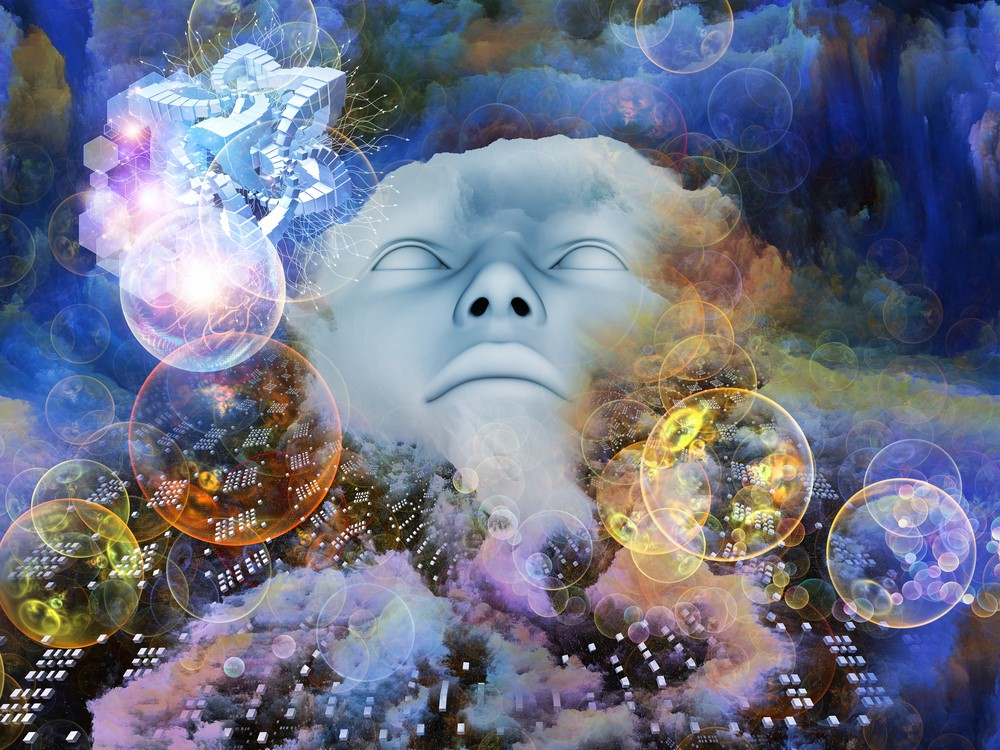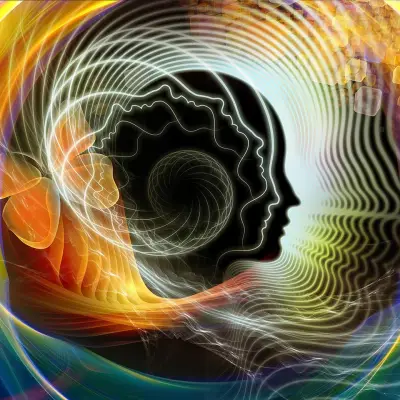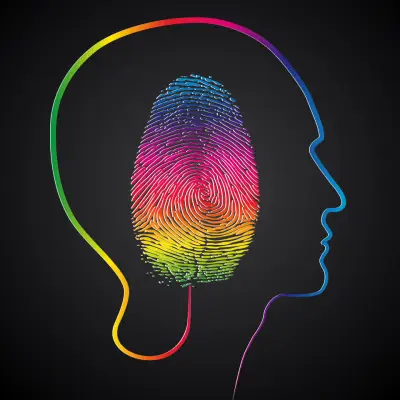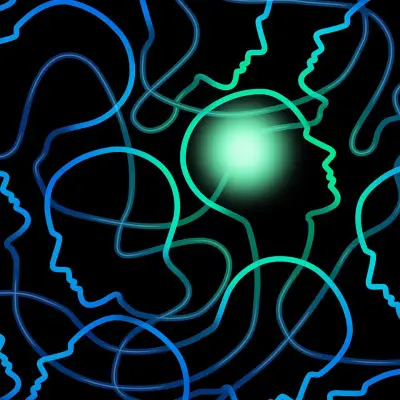Have you ever woken up feeling like you have just lived through a movie? You have more than likely experienced a vivid dream. These dreams are characterised by their intense and realistic imagery. In this article, we'll explore everything you need to know about vivid dreams, including how to interpret them.
Understanding Vivid Dreams
Vivid dreams occur during REM (Rapid Eye Movement) sleep, which is the stage of sleep where most dreaming occurs. During REM sleep, the brain is highly active, and the body is paralysed to prevent acting out the dream. This stage of sleep typically occurs several times a night and can last up to an hour.
Arguably, there's no clinically established classification for a "vivid dream", but the term tends to describe a highly intense dream that convinces the dreamer that it's real. Such dreams often include bright colours, strong emotions, and distinct sensory experiences.
Nightmares are generally classed as vivid dreams, but not all vivid dreams are nightmares! Some vivid dreams won't be unpleasant but can leave you feeling quite sad that you woke up to reality again. A vivid dream will often stick in your mind - potentially for a long time - after you've awoken.
In dream analysis and interpretation, vivid dreams can hold deep personal meanings for a dreamer, reflecting unconscious desires, anxieties, or repressed emotions. Some practitioners even believe vivid dreams can be used for self-reflection and personal growth, offering insights into the dreamer's subconscious mind.

Possible Causes of Vivid Dreams
If you have ever experienced a dream that felt incredibly real and vivid, you may have wondered what causes such intense dreams. Several factors can contribute to vivid dreams:
Stress and Mental Health Conditions
Stress is a common cause of vivid dreams. When stressed, your brain is more active during sleep, which can lead to more intense and memorable dreams. Mental health conditions such as anxiety and depression can also contribute to vivid dreams.
Pregnancy and Hormonal Changes
Pregnancy is another common cause of vivid dreams. Hormonal changes during pregnancy can affect the quality of your sleep, leading to more intense and memorable dreams. It's also possible to experience vivid dreams during parts of the menstrual cycle when certain hormone levels are elevated.
Sleep Disorders
Sleep disorders like insomnia, sleep apnea, and narcolepsy can also contribute to vivid dreams. These disorders can disrupt sleep cycles, leading to more frequent and intense dreams.
It is important to note that medications, alcohol, and drugs can also affect the quality of your sleep and contribute to vivid dreams. Additionally, traumatic events and post-traumatic stress disorder (PTSD) can lead to more intense and vivid dreams.
Recommended for you!
Best Sellers
Impact of Vivid Dreams on Daily Life
Vivid dreams can significantly impact your daily life, affecting your memory, sleep schedule, and overall fatigue levels. Here are some ways in which vivid dreams can impact your daily routine:
Memory
Vivid dreams can affect your ability to remember things, as they can be so vivid that they are often confused with real-life experiences. This can lead to confusion and difficulty distinguishing between reality and dreams. However, some studies suggest that vivid dreams can also improve memory consolidation, helping you to retain important information better.
Sleep Schedule
Vivid dreams can disrupt your sleep schedule, making it difficult to get a good night's sleep. This can lead to fatigue and difficulty concentrating during the day. It's important to establish and stick to a regular sleep schedule, even if you experience vivid dreams.
Fatigue
Vivid dreams can be exhausting, both mentally and physically. They can leave you feeling drained and exhausted, making it difficult to focus on your daily tasks. Taking care of yourself and getting plenty of rest if you experience vivid dreams regularly is important.
Nighttime Routine
Vivid dreams can also affect your nighttime routine, as they can be so intense that they wake you up during the night. This can lead to difficulty falling back asleep and further disrupt your sleep schedule. It's important to create a relaxing bedtime routine and avoid stimulating activities before bed to minimise the chance of having vivid dreams.

Interpreting Vivid Dreams
You may feel confused, anxious, or intrigued when you wake up from a vivid dream. You might wonder what the dream means and whether it has any significance. Here are some tips for interpreting vivid dreams:
Keep a dream journal
Write down your dreams as soon as you wake up while the details remain fresh. Record the people, places, and emotions you experienced in the dream. Over time, you may notice patterns or recurring themes that can help you understand the meaning of your dreams.
Pay attention to sound
Dreams can include sounds that may have meaning. For example, hearing a phone ringing may signify a missed opportunity or a need to communicate with someone.
Recall memories
Your memories and experiences can influence dreams. Remember any events or feelings from the previous day that may have influenced your dream.
Don't be scared
Scary dreams can be disturbing but often reflect your fears or anxieties. Try to identify the source of your fear and address it in your waking life.
Practice mindfulness
Mindfulness techniques such as meditation or deep breathing can help you relax and reduce stress, which may lead to more peaceful dreams.
Trust your subconscious mind
Dreams are often a reflection of your subconscious mind. Trust your intuition and listen to what your dreams are telling you.
By following these tips, you can begin to interpret the meaning of your vivid dreams and gain insight into your subconscious mind. Remember that dreams are subjective and have many interpretations, so don't be afraid to explore different possibilities.
What Do Vivid Dreams Mean?
As we've said, dream interpretation is subjective, and the meaning and significance of vivid dreams can vary greatly from person to person. However, some interpretations are certainly more widespread than others, so we've compiled some of the most common insights that these dreams can provide:
- Unconscious desires and needs: Vivid dreams are often thought to reflect unfulfilled desires, repressed emotions, or needs that aren't being met. They can, therefore, help the dreamer shine a light on an area of their life that isn't working for them.
- Processing of emotions: Powerful dreams may allow the unconscious mind to process and work through particularly difficult emotions. Emotions can be repressed, so a vivid dream can show a dreamer they must face what they're avoiding head-on.
- Personal growth and self-discovery: Dreams offer a glimpse into the dreamer's subconscious mind and can be analysed for guidance that might lead to personal growth and self-discovery. Perhaps we're unconsciously spreading our wings!
- Problem-solving: Sometimes, vivid dreams have very little hidden meaning but instead give us a helping hand when we're already aware of an issue. They can provide a scenario where the unconscious mind can work through and solve complex problems. It's like a trial run for real life.
- Past experiences and memories: Intense dreams can reflect past experiences and memories and show how these experiences have shaped our lives.
Diving into the dream state to unravel inner meanings is a subject that has fascinated humanity for thousands of years. The most important part about interpreting dreams is to trust your intuition and interpret them in a way that maintains meaning for you.

Managing Vivid Dreams
If you're experiencing powerful dreams that are causing you distress or affecting your sleep, there are some things you can do to manage them. Here are two helpful approaches:
Good Sleep Hygiene
Good sleep hygiene refers to the habits and practices that can help you get a good night's sleep. Here are some tips that can help you create a healthy sleep environment and improve your sleep quality:
- Stick to a regular sleep schedule, even on weekends.
- Create a relaxing bedtime routine to help you wind down before sleep.
- Make sure your bedroom is cool, dark, and quiet.
- Avoid using electronic devices before bed, as the blue light can interfere with sleep.
- Limit your caffeine and alcohol intake, especially in the evening.
- Exercise regularly, but not too close to bedtime.
By following these tips, you can help eliminate any factors contributing to your vivid dreams.
Relaxation Techniques and Mindfulness
Relaxation techniques and mindfulness practices can also help manage intense dreams. Here are some techniques you can try:
- Deep breathing exercises: Inhale deeply through your nose and exhale slowly through your mouth. This can help you relax and reduce stress.
- Progressive muscle relaxation: Tense and relax each muscle group in your body, starting with your toes and working your way up to your head.
- Mindfulness meditation: Focus on your breath and bring your attention to the present moment. This can help you feel more peaceful and calm.
- Imagery rehearsal therapy: Visualise a positive outcome to your dream before you go to sleep. This can help you feel more in control and less anxious about your dreams.
If your dreams persist and are causing you distress, speaking to your doctor for further advice and support may be helpful. Remember, taking care of your sleep and peace of mind is important for your overall health and well-being.
How to Have Vivid Dreams
If you're more interested in promoting intense dreams than avoiding them, then it's more tricky to offer specific advice. Many tips to assist vivid dreamers can be applied to those who wish to avoid them, so there's much disagreement here!
However, here are several tips that we know of if you want to increase your chances of having intense dream experiences:
- Think about dreaming: The simple act of thinking about dreaming may manifest vivid dreams more regularly.
- Listen to ambient music: Some dreamers report that background music results in their best dreams. However, keep any soundtrack ambient, as you don't want to distract your higher-order brain functions.
- Pleasant odours: Small studies have suggested that pleasant odours within a room can promote good dreams, and bad smells can yield bad vivid dreams.
- Wake yourself during REM: Try waking yourself up around 2-3 hours before you usually rise. The idea is to wake yourself up during REM sleep when there's more chance of you having vivid dreams. You will likely remember a dream that was already ongoing, and consciously renewing your intention to dream vividly at that point may allow you to plunge back into the dream world.
- Suppress your thoughts: Trying hard not to think about something at bedtime may increase the chance of your subconscious pulling it into a dream!
- Sleep on your stomach: Sleeping on your stomach is not recommended if you want to sleep soundly, but it may increase your chance of experiencing certain types of vivid dreams.
- Practise lucid dreaming techniques: Lucid dreaming is like a subcategory of vivid dreaming. It's a state in which the dreamer is aware that they are dreaming and can control their dream experience! Practising various lucid dreaming techniques, such as reality checks (i.e., asking yourself whether you're dreaming during waking hours), visualisation, and becoming more self-aware in your waking life may boost the likelihood of vivid dreams. That said, being aware that you're dreaming can also temper the intensity of a dream, so this may not be what you're looking for.
What do Vivid Dreams Mean? A Summary
Vivid dreams are a fascinating phenomenon that contain many meanings and interpretations. They can be caused by a range of factors, and vary from person to person. Although vivid dreams can be scary, they can provide insight into the subconscious mind, and are worth studying.
If you'd like to learn more, our Dream Analysis & Therapy Diploma Course is available for just £29 (saving £98!). The course unpacks the most common dream interpretations in much greater detail. Also, it explores the background of dream analysis, tracing the subject from its Freudian roots right the way through to modern psychoanalytic. It's a must-buy for anyone wanting to learn more about analysing vivid dreams or even for those interested in psychology, the mind, and human emotions.













